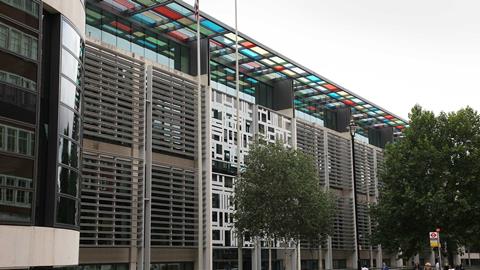'Regressive restructing' is not the answer to clearing the backlog of asylum appeals, a practitioner group has warned in response to government plans to end the use of asylum hotels. The government will find out this afternoon if it has successfully challenged an interim injunction blocking The Bell Hotel in Epping from housing asylum seekers.
On Sunday, the Home Office announced that, despite greater investment in court sitting days, the asylum appeal backlog was not being cleared fast enough. The government will unveil plans for cases to be heard by a new body of ‘independent professional adjudicators’ to speed up decisions.
However, Zoe Bantleman, legal director at the Immigration Law Practitioners’ Association (ILPA), said that if court sitting days alone cannot clear the backlog, neither will regressive restructuring. The government should instead focus on fixing the 'broken' legal aid system.
Bantleman said: ‘Legal aid providers are at breaking point, with promised increases to rates failing to undo the decades of austerity and red tape that have made legal aid completely unsustainable and unavailable.
Read more
'At present, the majority of people seeking asylum cannot find legal aid representation, resulting in them being unable to provide the witness, medical or country evidence often needed for the Home Office or tribunal to fairly progress their case. Access to justice will be denied if unrepresented appellants cannot make effective representations before an adjudicator.’
Bantleman noted that appeals were considered by adjudicators prior to unification of the tribunal system between 2005 and 2010, and queried how a new adjudicator system will sit alongside the current tribunal system or government plans for a fast-track system. Adjudicators would need to be able to 'fairly determine and anxiously scrutinise' life and death matters and their decisions must be open to appeal before a person is removed.
‘We continue to reiterate that the best way to prevent repetition of this backlog is to address the shortcomings of legal aid and ensure swift access to justice for those seeking asylum, improve the quality of the Home Office’s initial decisions and reviews, and channel increased funding and resources into the existing tribunal system,’ Bantleman said.
Update (29 August): The government won its appeal. The Court of Appeal's summary judgment can be found here.
This article is now closed for comment.




























11 Readers' comments